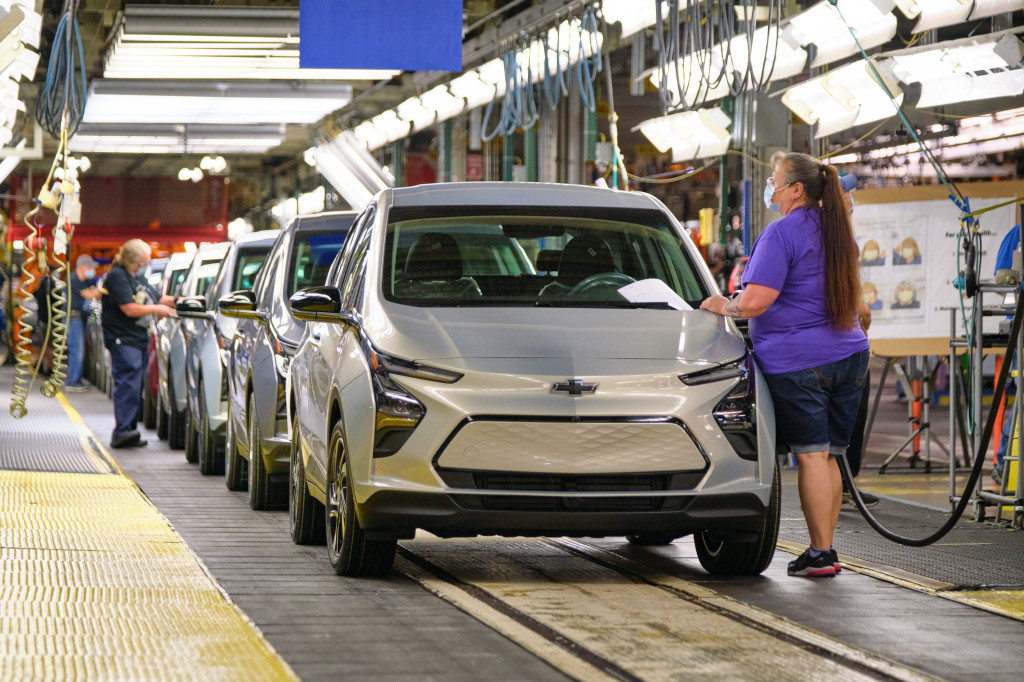The U.S. Treasury Department has delayed release of full guidance on qualifications for the revised federal EV tax credit until March.
The IRA re-upped the $7,500 federal EV tax credit and eliminated the previous 200,000-unit cap that a handful of automakers had already reached as of Jan. 1, but it also set stipulations on battery minerals and components for vehicles to qualify for the full amount.
Information "on the anticipated direction of the critical mineral and battery component requirements that vehicles must meet" to qualify for the credit under revised standards enacted with the Inflation Reduction Act (IRA) will come before the end of the year, the Treasury Department said this week in a press release, but full details won't come until next year.

Volkswagen ID.4 built at Chattanooga
The Treasury Department now plans to release proposed rules for critical mineral and battery components in March, with the requirements taking effect after the rules are issued, per the IRA statute.
This comes after the IRS (which is part of the Treasury Department) said that rules would be fast-tracked, and it recently set the stage for a deeper level of required reporting from automakers and sellers.
Even vehicles that don't qualify for the full $7,500 amount could qualify for a $3,750 credit if both final assembly, and assembly of 50% of components, takes place in North America. An additional amount, which is surely tied to that guidance, would require 40% of critical battery minerals to be processed in the U.S. or in a U.S. free-trade partner, or if battery recycling occurs in North America, according to the EPA's Alternative Fuels Data Center.

2022 Chevrolet Bolt EUV and EV production starts
That appears to suggest a number of American-made, American-battery-sourced vehicles qualify for a $3,750 credit from January 1 onward. Since General Motors, which had already reached the credit ceiling under the old rule, will have that lifted, the Chevrolet Bolt EV and EUV are among the models that will start benefiting from the new rule.
Through the end of the year, you can buy an EV or PHEV and qualify for the tax credit—if it's American-made. The Treasury Department will announce a timeline for implementation of the new tax-credit rules after the proposed rules are released in March.
No matter what the exact outcome, the new requirements are expected to drastically cut the number of qualifying vehicles for the near future. And it means EV buyers will face a confusing bottom line until then—especially as some automakers may step up anticipatory discounts.












